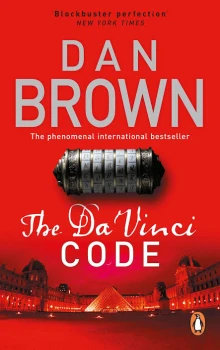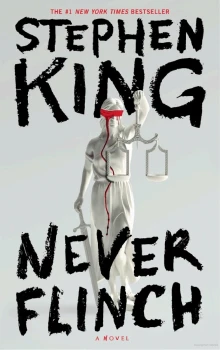The Depository Bank of Zurich was a twenty-four-hour Geldschrank bank offering the
full modern array of anonymous services in the tradition of the Swiss numbered account.
Maintaining offices in Zurich, Kuala Lumpur, New York, and Paris, the bank had
expanded its services in recent years to offer anonymous computer source code escrow
services and faceless digitized backup.
The bread and butter of its operation was by far its oldest and simplest offering—the
anonyme Lager—blind drop services, otherwise known as anonymous safe-deposit
boxes. Clients wishing to store anything from stock certificates to valuable paintings
could deposit their belongings anonymously, through a series of high-tech veils of
privacy, withdrawing items at any time, also in total anonymity.
As Sophie pulled the taxi to a stop in front of their destination, Langdon gazed out at
the building's uncompromising architecture and sensed the Depository Bank of Zurich
was a firm with little sense of humor. The building was a windowless rectangle that
seemed to be forged entirely of dull steel. Resembling an enormous metal brick, the
edifice sat back from the road with a fifteen-foot-tall, neon, equilateral cross glowing
over its facade.
Switzerland's reputation for secrecy in banking had become one of the country's most
lucrative exports. Facilities like this had become controversial in the art community
because they provided a perfect place for art thieves to hide stolen goods, for years if
necessary, until the heat was off. Because deposits were protected from police inspection
by privacy laws and were attached to numbered accounts rather than people's names,
thieves could rest easily knowing their stolen goods were safe and could never be traced
to them.
Sophie stopped the taxi at an imposing gate that blocked the bank's driveway—a
cement-lined ramp that descended beneath the building. A video camera overhead was
aimed directly at them, and Langdon had the feeling that this camera, unlike those at the
Louvre, was authentic.
Sophie rolled down the window and surveyed the electronic podium on the driver's
side. An LCD screen provided directions in seven languages. Topping the list was
English.
INSERT KEY.
Sophie took the gold laser-pocked key from her pocket and turned her attention back
to the podium. Below the screen was a triangular hole.
“Something tells me it will fit,” Langdon said.
Sophie aligned the key's triangular shaft with the hole and inserted it, sliding it in until
the entire shaft had disappeared. This key apparently required no turning. Instantly, the
gate began to swing open. Sophie took her foot off the brake and coasted down to a
second gate and podium. Behind her, the first gate closed, trapping them like a ship in a
lock.
Langdon disliked the constricted sensation. Let's hope this second gate works too.
This second podium bore familiar directions.
INSERT KEY.
When Sophie inserted the key, the second gate immediately opened. Moments later
they were winding down the ramp into the belly of the structure.
The private garage was small and dim, with spaces for about a dozen cars. At the far
end, Langdon spied the building's main entrance. A red carpet stretched across the
cement floor, welcoming visitors to a huge door that appeared to be forged of solid
metal.
Talk about mixed messages, Langdon thought. Welcome and keep out.
Sophie pulled the taxi into a parking space near the entrance and killed the engine.
“You'd better leave the gun here.”
With pleasure, Langdon thought, sliding the pistol under the seat.
Sophie and Langdon got out and walked up the red carpet toward the slab of steel. The
door had no handle, but on the wall beside it was another triangular keyhole. No
directions were posted this time.
“Keeps out the slow learners,” Langdon said.
Sophie laughed, looking nervous. “Here we go.” She stuck the key in the hole, and the
door swung inward with a low hum. Exchanging glances, Sophie and Langdon entered.
The door shut with a thud behind them.
The foyer of the Depository Bank of Zurich employed as imposing a decor as any
Langdon had ever seen. Where most banks were content with the usual polished marble
and granite, this one had opted for wall-to-wall metal and rivets.
Who's their decorator? Langdon wondered. Allied Steel?
Sophie looked equally intimidated as her eyes scanned the lobby.
The gray metal was everywhere—the floor, walls, counters, doors, even the lobby
chairs appeared to be fashioned of molded iron. Nonetheless, the effect was impressive.
The message was clear: You are walking into a vault.
A large man behind the counter glanced up as they entered. He turned off the small
television he was watching and greeted them with a pleasant smile. Despite his enormous
muscles and visible sidearm, his diction chimed with the polished courtesy of a Swiss
bellhop.
“Bonsoir,” he said. “How may I help you?”
The dual-language greeting was the newest hospitality trick of the European host. It
presumed nothing and opened the door for the guest to reply in whichever language was
more comfortable.
Sophie replied with neither. She simply laid the gold key on the counter in front of the
man.
The man glanced down and immediately stood straighter. “Of course. Your elevator is
at the end of the hall. I will alert someone that you are on your way.”
Sophie nodded and took her key back. “Which floor?”
The man gave her an odd look. “Your key instructs the elevator which floor.”
She smiled. “Ah, yes.”
The guard watched as the two newcomers made their way to the elevators, inserted their
key, boarded the lift, and disappeared. As soon as the door had closed, he grabbed the
phone. He was not calling to alert anyone of their arrival; there was no need for that. A
vault greeter already had been alerted automatically when the client's key was inserted
outside in the entry gate.
Instead, the guard was calling the bank's night manager. As the line rang, the guard
switched the television back on and stared at it. The news story he had been watching
was just ending. It didn't matter. He got another look at the two faces on the television.
The manager answered. “Oui?”
“We have a situation down here.”
“What's happening?” the manager demanded.
“The French police are tracking two fugitives tonight.”
“So?”
“Both of them just walked into our bank.”
The manager cursed quietly. “Okay. I'll contact Monsieur Vernet immediately.”
The guard then hung up and placed a second call. This one to Interpol.
Langdon was surprised to feel the elevator dropping rather than climbing. He had no idea
how many floors they had descended beneath the Depository Bank of Zurich before the
door finally opened. He didn't care. He was happy to be out of the elevator.
Displaying impressive alacrity, a host was already standing there to greet them. He was
elderly and pleasant, wearing a neatly pressed flannel suit that made him look oddly out
of place—an old-world banker in a high-tech world.
“Bonsoir,” the man said. “Good evening. Would you be so kind as to follow me, s'il
vous plaît?” Without waiting for a response, he spun on his heel and strode briskly down
a narrow metal corridor.
Langdon walked with Sophie down a series of corridors, past several large rooms
filled with blinking mainframe computers.
“Voici,” their host said, arriving at a steel door and opening it for them. “Here you
are.”
Langdon and Sophie stepped into another world. The small room before them looked
like a lavish sitting room at a fine hotel. Gone were the metal and rivets, replaced with
oriental carpets, dark oak furniture, and cushioned chairs. On the broad desk in the
middle of the room, two crystal glasses sat beside an opened bottle of Perrier, its bubbles
still fizzing. A pewter pot of coffee steamed beside it.
Clockwork, Langdon thought. Leave it to the Swiss.
The man gave a perceptive smile. “I sense this is your first visit to us?”
Sophie hesitated and then nodded.
“Understood. Keys are often passed on as inheritance, and our first-time users are
invariably uncertain of the protocol.” He motioned to the table of drinks. “This room is
yours as long as you care to use it.”
“You say keys are sometimes inherited?” Sophie asked.
“Indeed. Your key is like a Swiss numbered account, which are often willed through
generations. On our gold accounts, the shortest safety-deposit box lease is fifty years.
Paid in advance. So we see plenty of family turnover.”
Langdon stared. “Did you say fifty years?”
“At a minimum,” their host replied. “Of course, you can purchase much longer leases,
but barring further arrangements, if there is no activity on an account for fifty years, the
contents of that safe-deposit box are automatically destroyed. Shall I run through the
process of accessing your box?”
Sophie nodded. “Please.”
Their host swept an arm across the luxurious salon. “This is your private viewing
room. Once I leave the room, you may spend all the time you need in here to review and
modify the contents of your safe-deposit box, which arrives . . . over here.” He walked
them to the far wall where a wide conveyor belt entered the room in a graceful curve,
vaguely resembling a baggage claim carousel. “You insert your key in that slot there. . .
.” The man pointed to a large electronic podium facing the conveyor belt. The podium
had a familiar triangular hole. “Once the computer confirms the markings on your key,
you enter your account number, and your safe-deposit box will be retrieved robotically
from the vault below for your inspection. When you are finished with your box, you
place it back on the conveyor belt, insert your key again, and the process is reversed.
Because everything is automated, your privacy is guaranteed, even from the staff of this
bank. If you need anything at all, simply press the call button on the table in the center of
the room.”
Sophie was about to ask a question when a telephone rang. The man looked puzzled
and embarrassed. “Excuse me, please.” He walked over to the phone, which was sitting
on the table beside the coffee and Perrier.
“Oui?” he answered.
His brow furrowed as he listened to the caller. “Oui . . . oui . . . d'accord.” He hung
up, and gave them an uneasy smile. “I'm sorry, I must leave you now. Make yourselves
at home.” He moved quickly toward the door.
“Excuse me,” Sophie called. “Could you clarify something before you go? You
mentioned that we enter an account number?”
The man paused at the door, looking pale. “But of course. Like most Swiss banks, our
safe-deposit boxes are attached to a number, not a name. You have a key and a personal
account number known only to you. Your key is only half of your identification. Your
personal account number is the other half. Otherwise, if you lost your key, anyone could
use it.”
Sophie hesitated. “And if my benefactor gave me no account number?”
The banker's heart pounded. Then you obviously have no business here! He gave them
a calm smile. “I will ask someone to help you. He will be in shortly.”
Leaving, the banker closed the door behind him and twisted a heavy lock, sealing them
inside.
Across town, Collet was standing in the Gare du Nord train terminal when his phone
rang.
It was Fache. “Interpol got a tip,” he said. “Forget the train. Langdon and Neveu just
walked into the Paris branch of the Depository Bank of Zurich. I want your men over
there right away.”
“Any leads yet on what Saunière was trying to tell Agent Neveu and Robert
Langdon?”
Fache's tone was cold. “If you arrest them, Lieutenant Collet, then I can ask them
personally.”
Collet took the hint. “Twenty-four Rue Haxo. Right away, Captain.” He hung up and
radioed his men.






